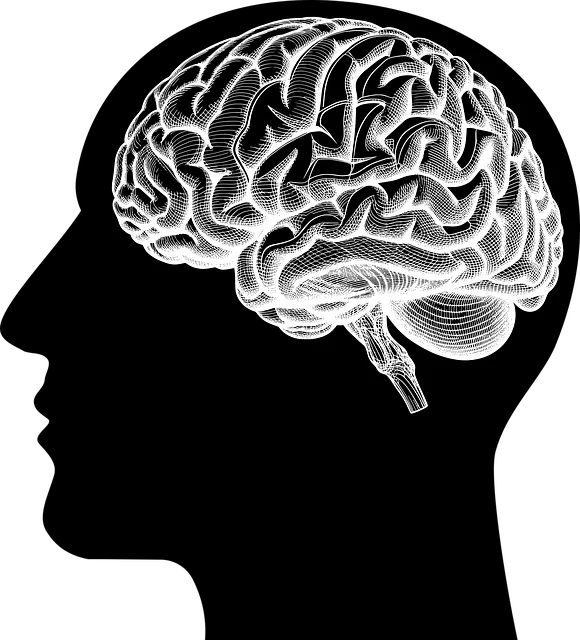The Kaiser Permanente behavioral health center Boulder offers tailored Social Skills Training (SST) integrating Emotional Intelligence and Conflict Resolution Techniques for individuals with mental health conditions. This holistic program improves confidence, communication, and relationships, reducing symptoms of depression and anxiety while fostering resilience and a sense of belonging. SST combines evidence-based practices like Trauma Support Services, Mental Wellness Journaling, and Cultural Competency training to empower patients in personal and professional settings.
Social skills training is a powerful tool in mental health care, offering individuals coping strategies for daily interactions. At the Kaiser Permanente Behavioral Health Center Boulder, we specialize in comprehensive programs that foster meaningful connections and improve overall well-being. This article explores the benefits of social skills training for various mental health conditions, from anxiety to depression. We’ll delve into tailored approaches, practical tips, and resources, highlighting why this innovative therapy is a game-changer, especially in the context of Kaiser Permanente’s expert care.
- Understanding Social Skills Training: A Key Component of Mental Health Care
- The Role of Kaiser Permanente Behavioral Health Center Boulder in Providing Comprehensive Training
- Identifying the Benefits: How Social Skills Training Can Improve Quality of Life
- Targeting Specific Conditions: Tailoring Training for Different Mental Health Challenges
- Practical Tips and Resources for Effective Social Skills Development
Understanding Social Skills Training: A Key Component of Mental Health Care

Social Skills Training is a critical component of mental health care, offering individuals valuable tools to navigate social interactions with confidence and ease. This type of training equips people with strategies to build healthy relationships, communicate effectively, and manage emotional responses in various social settings. At Kaiser Permanente behavioral health center Boulder, we recognize that many mental health conditions can impact an individual’s ability to engage socially, leading to feelings of isolation and further distress.
By incorporating techniques such as Emotional Intelligence and Conflict Resolution Techniques into our Trauma Support Services, we aim to empower individuals to overcome challenges in their social lives. Through structured programs and individualized support, our trained professionals guide patients in developing essential social skills, fostering self-awareness, and improving overall well-being. This holistic approach ensures that mental health care is not just about treating symptoms but also preparing individuals to thrive in their personal and professional relationships.
The Role of Kaiser Permanente Behavioral Health Center Boulder in Providing Comprehensive Training

The Kaiser Permanente Behavioral Health Center Boulder plays a pivotal role in offering comprehensive social skills training tailored to individuals with mental health conditions. This specialized center recognizes the inherent connection between social interactions and mental wellness, thus integrating various therapeutic approaches into its programs. By providing a safe and supportive environment, they empower clients to navigate social scenarios effectively, fostering better relationships and enhancing overall mental health.
The center’s expertise lies in tailoring these training sessions to address unique challenges, especially those stemming from trauma. They offer guidance on practical social skills, coupled with evidence-based practices such as Trauma Support Services and Mental Wellness Journaling Exercises. These initiatives ensure that participants develop resilience and self-confidence, ultimately leading to improved quality of life and better coping mechanisms for managing mental health conditions.
Identifying the Benefits: How Social Skills Training Can Improve Quality of Life

Social Skills Training (SST) offers significant benefits for individuals managing mental health conditions, potentially transforming their lives and overall well-being. This evidence-based approach is a cornerstone of services provided at the Kaiser Permanente behavioral health center in Boulder, Colorado. By focusing on enhancing social interactions, communication, and relationship skills, SST can empower people to navigate social situations with greater confidence and ease.
This form of training is instrumental in promoting better mental health outcomes, including reduced symptoms of depression and burnout. It also fosters a sense of belonging and connection, which is vital for maintaining resilience against mental health challenges. Moreover, SST contributes to the development of public awareness campaigns by equipping individuals with tools to support their peers, thereby broadening the impact of mental health initiatives beyond traditional therapy settings.
Targeting Specific Conditions: Tailoring Training for Different Mental Health Challenges

Social skills training plays a pivotal role in managing mental health conditions, offering tailored support for various challenges. At the Kaiser Permanente behavioral health center Boulder, professionals recognize that different mental health disorders require distinct approaches. For instance, training for individuals with anxiety disorders may focus on relaxation techniques and assertiveness training to navigate social situations with confidence. In contrast, those facing depression might engage in role-playing exercises to improve communication and build supportive relationships.
This tailored approach extends beyond individual therapy. Healthcare Provider Cultural Competency Training equips staff with the knowledge to address diverse patient needs. Mental Health Policy Analysis and Advocacy ensures policies reflect the latest research and community input. Additionally, Mental Wellness Coaching Programs Development creates structured initiatives to empower individuals in their recovery journeys, fostering a sense of belonging and enhancing social connectivity.
Practical Tips and Resources for Effective Social Skills Development

Developing social skills is a powerful tool for managing mental health conditions, and the Kaiser Permanente behavioral health center Boulder offers valuable resources for those seeking support. For individuals looking to enhance their interactions with others, practical tips like practicing active listening can make a significant difference. By focusing on fully understanding someone else’s perspective, you can build stronger connections and improve communication, which is essential for managing stress and anxiety in social settings.
Additionally, incorporating conflict resolution techniques into your repertoire can help navigate challenging interactions. Learning to manage emotions during conflicts and find mutually beneficial solutions fosters healthier relationships. Empathy building strategies are another key component, as they encourage individuals to consider others’ feelings and responses, promoting more compassionate and supportive exchanges. Incorporating Mind Over Matter principles can also empower individuals to reframe negative thoughts and beliefs, fostering a more positive outlook on social interactions.
Social skills training, as recognized and provided by institutions like the Kaiser Permanente Behavioral Health Center Boulder, is a powerful tool in enhancing the lives of individuals with mental health conditions. By addressing specific challenges through tailored programs, this comprehensive approach can significantly improve social interactions and overall well-being. Incorporating practical tips and resources accessible to all fosters a supportive environment, making it an essential component of holistic mental health care.






